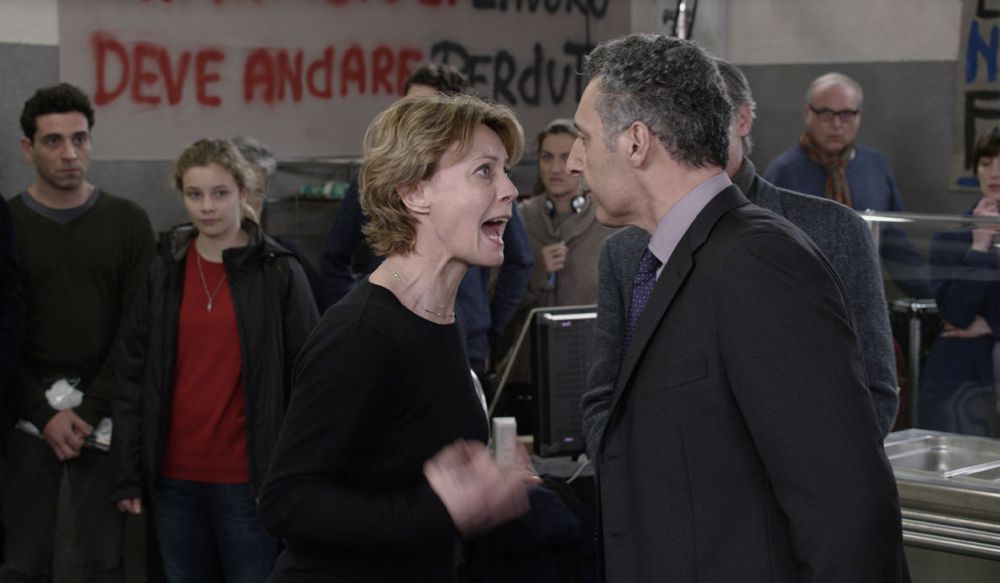 (2 / 5)
(2 / 5)
For a film about the process of losing a loved one, Mia Madre (My Mother), the latest from writer-director Nanni Moretti, has a deceptively light touch.
Margherita (Margherita Buy) is a supposedly well-respected director of sensitive social realist dramas — her latest project is a polemic examination of factory workers fighting for their jobs in the face of layoffs. Margherita isn’t interested in human brutality, though: her whole life is an essay in understated detachment. She operates in a state of perpetual unspoken uncertainty, unable to fully engage with those around her, including a slew of exes frustrated by her inability to commit.
Meanwhile, the only advice Margherita seems to be able to give her actors is to be both themselves and their character; a concept completely alien to her leading man — the self-impressed, un-self-aware Barry (John Turturro) — and one that even she doesn’t fully understand.
Margherita’s mother Ada (Giulia Lazzarini) is laid up in hospital after a fall, but is still committed to teaching her fresh-faced granddaughter, Livia (Beatrice Mancini), Latin. Ada is a pillar of constancy, apparently based on Moretti’s own mother, Agata, who during the filming of his last film, We Have a Pope — Lazzarini apparently wears Agata’s hospital clothes at certain points in Mia Madre.
Unlike both her daughter and her son, Margherita’s brother, the quiet, pragmatic Giovanni (Nanni himself), who’s taken a leave of absence from work, Ada knows what she wants. Margherita moves through grey industrial environments, giving instructions to a crew too respectful, or else unmotivated, to show much initiative or preempt her poor choices.
Mia Madre could be drearily insufferable were it not for Turturro’s uneasy grin or that Buy imbues Margherita with a touch of ironic humour. Morretti threads the film through with dream sequences — Margherita following an infinite queue outside a movie theater or experiencing brisk fantasies of her life after her mother’s death — that seem so natural you can’t immediately tell them apart from the film’s “reality”.
Whether it’s Barry throwing a tantrum after flubbing his lines for the nth time or Margherita trying desperately to use newspaper to mop up a flooded hallway or bursting into desperate tears when unable to find a utility bill, Mia Madre‘s balancing of comedy and tragedy is neat, but never provokes floods of either tears or laughter.
Buy and Turturro’s performances are sterling, but Mia Madre as a whole is only silver-plated: nicely reflective but hardly deep.
